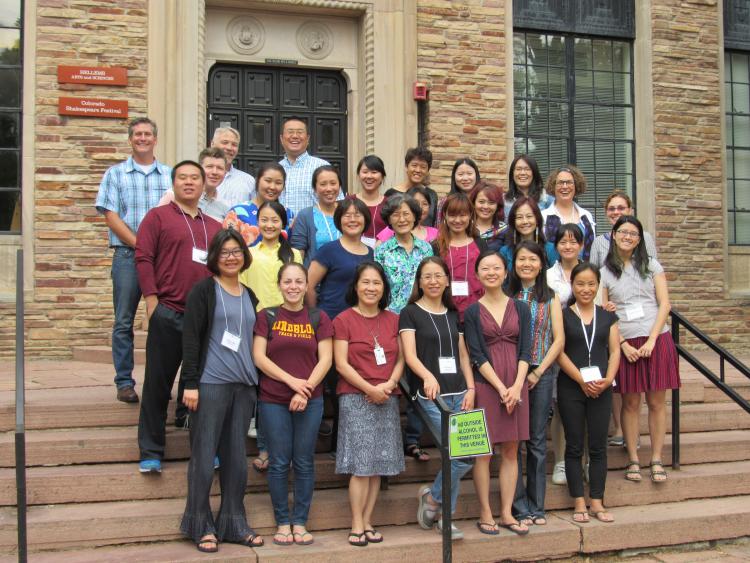
The Program for Teaching East Asia completed its 17th year at CAS with national and local programs for K-12 teachers that included residential summer institutes on Japan and Korea, online professional development courses and book discussion groups, conference presentations, workshops, and classroom resource development. In the past year, TEA received new awards from the Freeman Foundation, the US-Japan Foundation, the Korea Foundation, and the AAS Northeast Asia Council. Readers interested in more information on how TEA serves pre-college educators and schools can keep up-to-date by subscribing to the TEA monthly E-News or Twitter accounts. Visit our new, redesigned webpage at www.colorado.edu/ptea to sign up. For the 2017 CAS newsletter, TEA highlights our STARTALK Chinese Language Program funded by the National Security Agency.
Focus on STARTALK: Building a Tradition of Chinese Language Professional Development at TEA
In summer 2016, TEA hosted its sixth annual STARTALK teacher development program for Chinese language teachers. Launched in 2006, the federal STARTALK program provides K-16 teachers and students of critical-need foreign languages with intensive summer training experiences. STARTALK programs are selected to implement best practices in language teaching and learning. To date, nearly 125 secondary teachers from around the country have come to CU Boulder to participate in the TEA STARTALK programs.
Beginning with its first STARTALK grant, TEA has collaborated with the Anderson Language and Technology Center (ALTEC) on campus to develop an engaging program that includes training to incorporate technology into the language classroom. The teacher response to the technology training was so positive that TEA adapted its program to focus entirely on the integration of learner-centered technology into the Chinese language curriculum. Jon Zeljo, TEA senior staff associate and STARTALK program director, says the move was driven by teacher needs. “It was clear from teacher comments and evaluations, as well as inquiries from prospective applicants, that teachers were seeking out significant technology training. Given the direction of teaching and learning in the twenty-first century, they see this knowledge and skill as essential to be effective in the classroom.” Mark Knowles, Director of ALTEC, takes this sentiment one step further: “The professional sustainability of world language teachers is dependent upon the teacher possessing these skills.”
At TEA, the program introduces the theory, standards, frameworks, knowledge, and practice necessary for incorporating a range of learner-centered technology tools into the Chinese curriculum. Program topics included challenges/affordances to technology integration in the language classroom, development of a learner-centered language classroom, the flipped language classroom, digital storytelling, technology project assessments, and cultivation of a Personalized Learning Network. In addition to working with language technology specialists on the ALTEC staff, participants this past summer had the opportunity to learn from Toni Theisen, former ACTFL president and ACTFL National Foreign Language Teacher Award recipient, and Leslie Davison, world language teacher and author of a new book of dual language learning, both of whom teach in Colorado. In addition, Jeff Wang, director of China Learning Initiatives at the Asia Society, opened the program with a talk on the new era of Chinese learning in the US.
Zeljo highlights the excitement the teachers are showing for wanting to experiment and find ways to engage their students with technology. “Their attitudes toward technology have undoubtedly changed, and they now see technology as a critical tool to be effective in the classroom. But, perhaps more importantly, their approach to language learning has shifted, as they now understand that as teachers they can no longer do things the way they’ve always been done.”
In January 2017, TEA received news that it has been awarded a seventh STARTALK grant for summer 2017.
